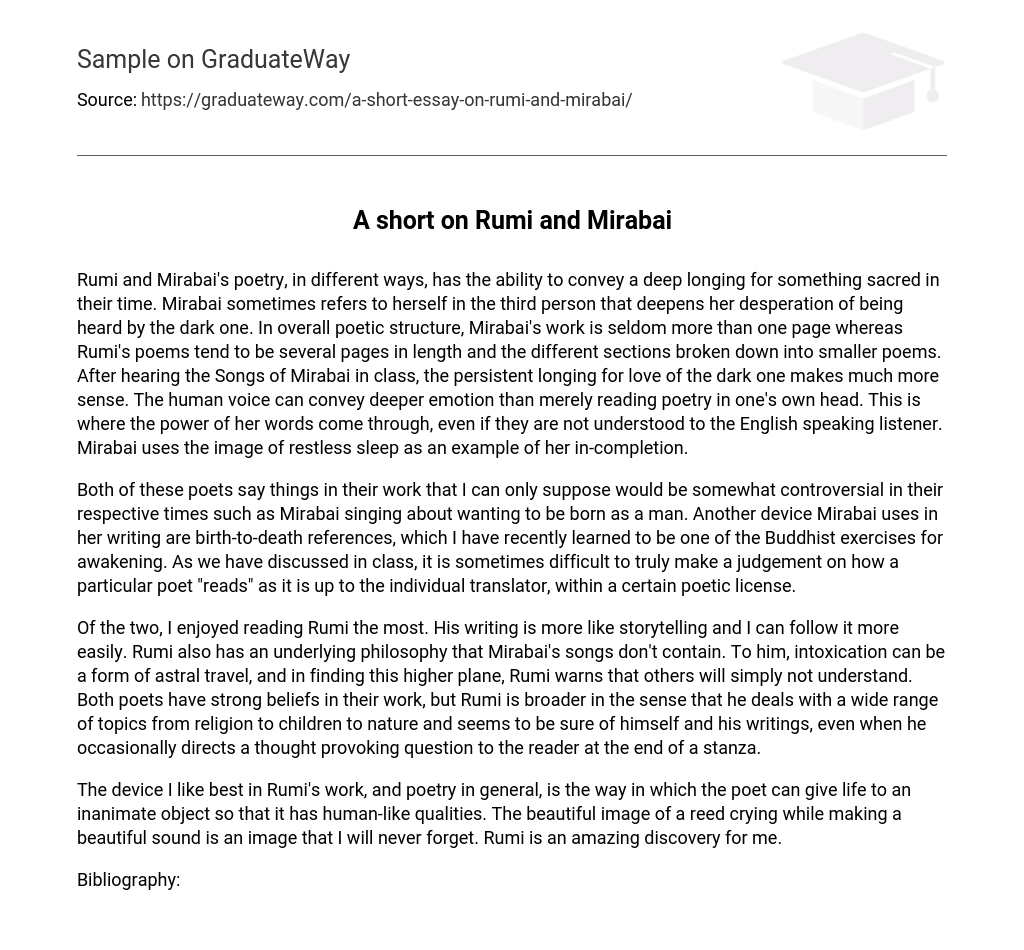Both Rumi and Mirabai express a profound yearning for something sacred in their poetry, albeit in different ways. Mirabai, by occasionally referring to herself in the third person, intensifies her desperate desire to be heard by the dark one. In terms of poetic structure, Mirabai’s poems are typically no longer than one page, whereas Rumi’s compositions often extend to multiple pages, with each section further subdivided into smaller poems. The class’s exposure to Mirabai’s Songs has made it easier to comprehend her incessant craving for the love of the dark one. The human voice possesses a greater capacity to convey deep emotion compared to silently reading poetry. It is through this means that the power of Mirabai’s words becomes apparent, even if they remain incomprehensible to English-speaking listeners. Mirabai employs the metaphor of restless sleep as an illustration of her unfulfillment.
Both of these poets express ideas in their poetry that were likely considered controversial during their respective time periods, such as Mirabai’s desire to be born as a man. Mirabai also incorporates birth-to-death references in her writing, which I have recently discovered is a technique used in Buddhist exercises for enlightenment. As we have discussed in class, it can be challenging to fully interpret how a poet’s work is understood as it ultimately depends on the translator and their poetic interpretation.
Among the two, my preferred read is Rumi. His writing style resembles storytelling and makes it easier for me to comprehend. Furthermore, Rumi’s works encompass a deeper philosophy that is absent in Mirabai’s songs. According to him, intoxication can serve as a means of astral travel, and he cautions that others might not grasp this higher plane. Both poets possess strong convictions in their creations; however, Rumi stands out by addressing a wide array of subjects ranging from religion to children to nature. He exudes self-assurance in his writings, even when he occasionally poses thought-provoking questions to the reader at the close of a stanza.
I am particularly drawn to the aspect of Rumi’s work, as well as poetry overall, where inanimate objects are imbued with human-like qualities. The poignant portrayal of a reed shedding tears while creating a harmonious melody is an unforgettable image that has deeply resonated within me. Rumi’s mesmerizing words have truly enchanted me and served as a profound revelation.
Bibliography:





